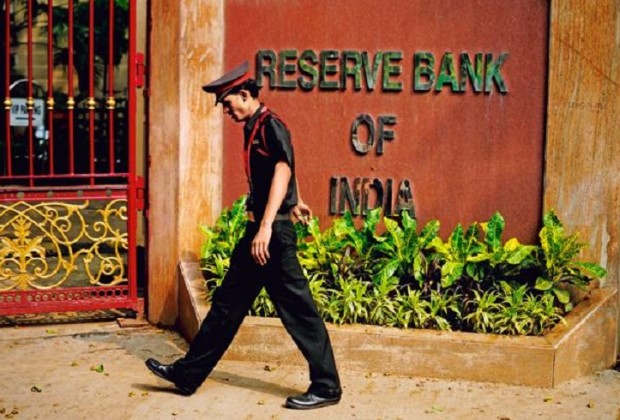Latest Posts
-
News 0
Is the euro here to stay?
Even before the recent well publicised economic difficulties experienced by some members of the eurozone – in fact, since it was first launched as a currency – questions had been raised about the long term viability of the euro. In 2005 the US economist Milton Friedman warned: “The euro is going to be a big source of problems, not a source of help. The euro has no precedent. To the best of my knowledge, there has never been a monetary union, putting out a fiat currency, composed of independent states. There have been unions based on gold or silver, but not on fiat money – money tempted to inflate – put out by politically independe...On June 18, 2010 / By Kurt Osterberg -
News 0
Islamic finance stakes position
No Islamic bank needed to be bailed out during the credit crisis and no tax-payer cash was needed to prop up feckless and reckless lending. Many banks, like the Jordan Islamic Bank (JIB) actually increased deposits and upped market share. In fact, H.E. Mr Mohammed Abu Hamour, the Minister of Finance, turned to JIB itself for a loan recently, so impressed was he with Islamic banking’s success during the credit crisis. No wonder, then, that some Islamic banks rapidly became safe havens for investors disillusioned with the western banking model. And while western banks slowly recover from the carnage, the Jordan Islamic Bank is an example of a...On June 18, 2010 / By Kurt Osterberg -
News 0
Financing solutions
Banco Inbursa is a subsidiary of Grupo Financiero Inbursa which was established in Mexico 44 years ago, and since its foundation the same controlling shareholders have been managing the group. The bank has a strong balance with a 21.1 percent tier 1 capital ratio and loan loss reserves that cover 3.6 times its non performing loans, which represent 2.6 percent of the total loan portfolio. This strength is reflected in the BBB rating that Standard & Poors has recently given Inbursa; BBB being the country ceiling. Low operating costs are key principles for Inbursa, which translates into higher profitability, as well as into a strong capabili...On June 18, 2010 / By Kurt Osterberg -
News 0
Trading global markets
For more than 25 years, active traders have been finding their competitive edge in the world’s markets with the award-winning charting and market analysis in eSignal. Especially now, as exchanges around the globe point to economic recovery, subscribers to eSignal’s charting and market data can find profitable opportunities using time-tested technical analysis methodologies. A comprehensive toolset for market success starts with information. eSignal provides reliable, fast, streaming, real-time stock, futures, forex and options prices from the world’s markets. Also available are market-changing, real-time news and commentary from respect...On June 18, 2010 / By Kurt Osterberg -
News 0
Difficulties on the horizon
Under the current economic environment many countries are confronted with the need for rigorous budget measures to meet deficit-cutting targets. The enormous government debts, resulting from the accumulated government deficits over several years, or in some cases even decades, is causing severe problems. The common denominator in the budget measures that are currently being introduced in many countries, in particular in the European Union, is the combination of serious spending cuts with tax-boosting measures. In addition to increasing tax rates and changes in the tax regulatory frameworks, an increased and more stringent focus on transfer pr...On June 18, 2010 / By Kurt Osterberg -
News 0
Rebuilding Wall Street
Easily the most significant of a mountain of laws now being drawn up in the backrooms of Congress and the Senate with the vigorous intervention of the White House is one that decrees no bank will be so big that it will not be allowed to fail. In short, no more bail-outs. The so-called “resolution authority” described in the banking reforms working their way through the Senate will see to that. As the US Treasury’s trouble-shooter on banking reform, deputy secretary Neal S Wolin, said late April, this authority means: “No firm will be insulated from the consequences of its action, no firm will be protected from failure, and taxpayers w...On June 18, 2010 / By Kurt Osterberg -
News 0
Multinationals target developing countries
The economic crisis slashed global FDI flows by around 40 percent in 2009, affecting, albeit to a varying extent, all countries, all sectors, and all forms of investment. Mergers and acquisitions in high-income countries were the quickest to contract soon after the sub-prime mortgage crisis in 2007. Gradually the contagion spread and affected new, greenfield investment, and expanded geographically from the Western industrial countries to the emerging markets and developing economies. Still, developing countries faired marginally better during the crisis. According to UNCTAD, a UN agency, FDI flows to developing countries in 2009 declined by...On June 18, 2010 / By Kurt Osterberg -
News 0
Is the euro here to stay?
Even before the recent well publicised economic difficulties experienced by some members of the eurozone – in fact, since it was first launched as a currency – questions had been raised about the long term viability of the euro. In 2005 the US economist Milton Friedman warned: “The euro is going to be a big source of problems, not a source of help. The euro has no precedent. To the best of my knowledge, there has never been a monetary union, putting out a fiat currency, composed of independent states. There have been unions based on gold or silver, but not on fiat money – money tempted to inflate – put out by politically independe...On June 18, 2010 / By Kurt Osterberg -
News 0
Islamic finance stakes position
No Islamic bank needed to be bailed out during the credit crisis and no tax-payer cash was needed to prop up feckless and reckless lending. Many banks, like the Jordan Islamic Bank (JIB) actually increased deposits and upped market share. In fact, H.E. Mr Mohammed Abu Hamour, the Minister of Finance, turned to JIB itself for a loan recently, so impressed was he with Islamic banking’s success during the credit crisis. No wonder, then, that some Islamic banks rapidly became safe havens for investors disillusioned with the western banking model. And while western banks slowly recover from the carnage, the Jordan Islamic Bank is an example of a...On June 18, 2010 / By Kurt Osterberg -
News 0
Germany appeals to EU neighbours to back bank levy
Merkel made her pitch ahead of a meeting of EU leaders to discuss tightening controls on spending by the bloc’s 27 countries and how charges against the banking industry should be structured. “We will prepare for the G20 and G8 meeting so that we can go with as united a European position as possible that also covers a bank levy and taxation of financial markets,” said Merkel. “Germany and France … are in favour of calling more on those who caused the crisis to pay up.” But doubts persist as to whether Europe can agree a code for a levy. Britain, which will introduce its own bank charge, is opposed to pan-European rules, and Irelan...On June 17, 2010 / By Kurt Osterberg
Top Posts
-
 The Importance for Individuals to Use Sustainable Chemicals
The Importance for Individuals to Use Sustainable Chemicals
-
 Small Businesses: Finding the Right Candidate for the Job
Small Businesses: Finding the Right Candidate for the Job
-
 How to Write the Perfect Thank You Letter After Your Job Interview
How to Write the Perfect Thank You Letter After Your Job Interview
-
 3 Best Large-Cap Blend Mutual Funds For Enticing Returns
3 Best Large-Cap Blend Mutual Funds For Enticing Returns
-
 China suspected in massive breach of federal personnel data
China suspected in massive breach of federal personnel data








